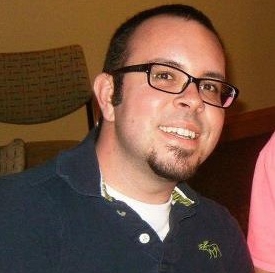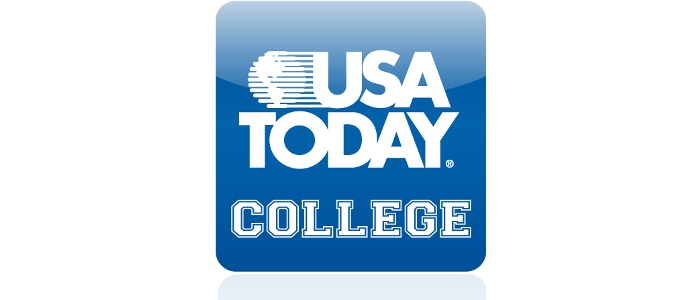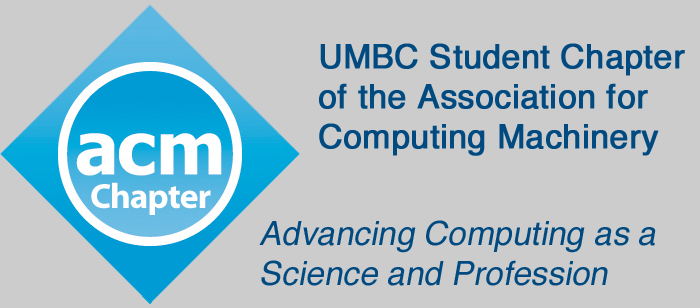 Congratulations to graduating seniors Thomas Christovich and Timothy Burke, who were awarded Student Leadership Awards by the Computer Science and Electrical Engineering Department. The pair was recognized for this honor at yesterday's Pre-commencement Breakfast & Awards Reception.
Congratulations to graduating seniors Thomas Christovich and Timothy Burke, who were awarded Student Leadership Awards by the Computer Science and Electrical Engineering Department. The pair was recognized for this honor at yesterday's Pre-commencement Breakfast & Awards Reception.
A Computer Engineering graduate, Thomas Christovich (pictured left) has been part of UMBC's Amateur Radio Club for four years, first as president (2009-2011), and more recently as treasurer (2011-2012). "Amateur Radio is a good opportunity to play with electronics and understand a little more about how radio works," says Christovich, who especially enjoyed competing in "good-natured" contests like the School Club Round Up, where the goal is to communicate with as many schools across the country as possible. Christovich was also active in athletics, playing intramural flag football every semester.
After graduation, Christovich is embarking on an across-country road trip with some friends–his "last hurrah" before he starts working full-time in Columbia.They plan to visit landmarks like Mount Rushmore, Yellowstone, and Yosemite as they make their way to the West Coast for a stop in San Francisco.
As he says goodbye to UMBC, Christovich's advice to other Computer Engineering graduates is to not be afraid to ask for help. "The Computer Engineering department has some of the most approachable professors I have ever known and they are always willing to help people that ask," he says. His second bit of advice is to get to know your classmates. There's nothing more helpful, he explains, than having a friend help you work through a problem from a different perspective.
 A Computer Science graduate, Timothy Burke (pictured right) is a Center for Women in Technology (CWIT) Scholars in Information Technology and Engineering (SITE) Scholar, a tutor in the Computer Science Help Center, and a peer mentor.
A Computer Science graduate, Timothy Burke (pictured right) is a Center for Women in Technology (CWIT) Scholars in Information Technology and Engineering (SITE) Scholar, a tutor in the Computer Science Help Center, and a peer mentor.
"Being involved with the CWIT community was an immeasurable benefit to me during my time at UMBC," says Burke, who transferred to UMBC from CCBC Catonsville and found a network of support within the CWIT community. Through CWIT, Burke volunteered with First Lego League and the USA Science and Engineering Festival. Thanks to relationships fostered by CWIT, Burke was part of the CSEE Department Promotion and Tenure Committee for the 2010-2011 academic year and participated in interviews for new faculty.
Burke also finds his time as a tutor especially valuable. "I greatly enjoyed my time tutoring other students in the Computer Science Help Center–it was great fun helping others learn and understand what they are studying," he explains. "That experience left a strong impression on me and has given me a desire to teach in the future."
After graduation, Burke will begin a full-time position as a software engineer at the Johns Hopkins University Applied Physics Laboratory. In the Fall, he will begin pursuing his Ph.D. in Computer Science at UMBC. Studying under Dr. Penny Rheingans, Burke's research will focus on Data Visualization and Human Computer Interaction.
Burke's advice to current Computer Science undergraduates includes the old standbys–like start your assignments sooner and ask for help when you need it–paired with a few specific pearls of wisdom: "Go sit by a lake when faced with obscure error codes," "If a job offer comes and you are told you will be working on 'legacy applications,' do not simply walk away, RUN", "Take a class that is way, way out of the major for a change of pace" (in his case HIST 387: Medicine and Healthcare in China), and "Find a slightly smarter friend to take Algorithms with."









